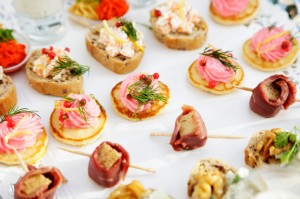The Most Wonderful Time of the Year?
For the past few weeks this holiday classic has been playing in my head. It’s the Most Wonderful Time of the Year Perhaps this was triggered by a client’s recent comments lamenting the start of the holiday season.
“I hate this time of year,” she said, “Absolutely hate it! There’s no joy in it for me.”
She went on to describe past losses, a history of family discord, and “burned bridges.” To make matters worse, the winter holidays were to be a series of firsts for her—first Thanksgiving, first Christmas, first New Year’s—without gambling or participating in an act of addiction and she didn’t know “how to do sober.”
This certainly didn’t sound like the most wonderful time of year for her, I observed.
The “Perfect” Holiday
Without a doubt, this time of year puts undue stress on us all. In recent years all of us have been subjected to increased media hype, often starting as early as September. We succumb to the lure of advertising, resulting in unreasonable expectations for ourselves and for others.
The media floods us with images of glamour and perfection. The gifts are elegantly wrapped. The table is impeccably set, and the turkey’s cooked perfectly. The scene is complete with smiling faces projecting contentment and happiness.
Sometimes, consciously and most certainly unconsciously, we compare our lives and our situations with these ideal images of the holiday. No wonder we come up lacking! Who can compete with staged sets, enhanced food photography techniques, and airbrushed models paid to look happy and festive?
All year long we’ve been chasing our tails. Add in the pace of the winter holidays, and we go into overdrive to keep up with the demands on our time. For those who aren’t dealing with addiction, there’s intense pressure during the “most wonderful time of the year.” And for those who are fighting an addiction, the pressure is even worse if they are not prepared or aware of the pitfalls of the holidays.
Is there anything you can do to accentuate the positive and minimize the negative influences of the holidays? Absolutely! I like to call them “The Three G’s”: Give of Yourself, Give to Yourself, and Guilt-free Gift Giving.
Holiday Survival Tips for Those in Recovery
Give of Yourself
The most important thing to remember is not to isolate, which actually makes the problem worse. The best way to get outside of yourself is to think about and do for others.
Within the recovery community itself, you can always help with setting up or cleaning up after meetings, talking to the newcomer, and sharing your strength and hope. Volunteer for tasks through Intergroup.
In the community, there’s an abundance of volunteer opportunities. Food banks and food kitchens are always in need of extra hands. Organizations such as the Humane Society and animal shelters welcome volunteer help throughout the year. You could volunteer to work with seniors or youth or any charitable organization that interests you.
However, if you decide that you really want to have your own pity party, set a timer for 15 minutes and indulge yourself. But when the timer goes off, get up and move on with life by thinking about someone else besides you.
Give to Yourself
▪ Try diversion/distraction techniques such as watching movies or reading a fast-paced non-work-related book. Laughter is the best medicine any time of year, so watching comedies is not only a great diversion but it will get you laughing. Visit your public library. The price is right to check out selections from their huge selection of books, DVDs, and music.
▪ There are some other things you can do that are inexpensive or free. Go for a walk or hike. Ride a bicycle. Grab your camera and see the world in a new way even if it’s only in your neighborhood. Check the newspaper entertainment magazines for free or low cost concerts, exhibits, and other activities in the community.
▪ Get out and socialize. Take a risk and ask someone out for coffee. If talking is difficult for you, start by genuinely listening to others. If you have not been particularly social due to the impact of your addiction and you are afraid to take a risk, remember that others may be equally nervous about connecting as well. Ironically I find that gamblers are risk-avoidant when it comes to trying new activities and connecting with others. But when actively gambling, gamblers are incredible risk takers.
Guilt-Free Gift Giving
About those gifts. There’s a tendency for all of us to overspend at Christmas time, and all spending rules fly out the window. Even those who have a solid spending plan in place may make small compromises here and there.Remorse is at an all-time high in January when the bills come due.
A gambler may engage in overspending as a way to soothe those pangs of guilt about past spending to fund the gambling. Those in early recovery are particularly vulnerable as gift giving may be viewed by the gambler as an opportunity to make amends to significant others.

Spending is at an all-time high during the holidays. But gift giving is not a way to make amends for those in recovery.
▪ Set a realistic budget and stick to it. You may need help from a sponsor or a therapist to help you evaluate if you’re staying within your means. The slogan “Keep It Simple” means just that. Gifts most remembered are those from the heart. And your new way of life is the best gift of all.
Maybe you’re like my client and doubting that it’s the most wonderful time of the year. The goal is to create wonderful moments for oneself—not an entire holiday season, not a picture-perfect family scene, not a dinner table laden with the finest. But wonderful moments.
Be like a child stringing pieces of popcorn to decorate the Christmas tree: string those moments together and you will have one day at a time. And that will definitely be wonderful!


